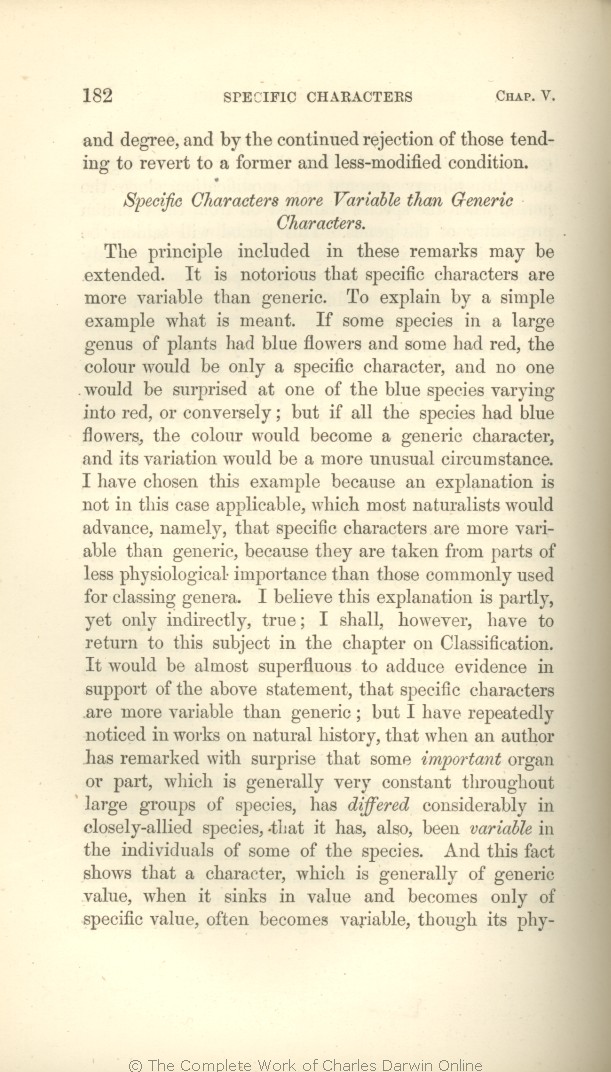The principle
included in these remarks | included in these remarks 1859 1860 1861 1866 |
| included in the above remarks 1869 |
| discussed under the last heading 1872 |
| extended. 1859 1860 1861 1866 1869 |
| applied to our present subject. 1872 |
| To 1859 1860 1861 1866 1869 | To 1872 |
| explain 1859 1860 1861 1866 1869 | explain 1872 |
| by 1859 1860 1861 1866 1869 | by 1872 |
| a 1859 1860 1861 1866 1869 | a 1872 |
| simple 1859 1860 1861 1866 1869 | simple 1872 |
| example 1859 1860 1861 1866 1869 | example 1872 |
| what 1859 1860 1861 1866 1869 | what 1872 |
| is 1859 1860 1861 1866 1869 | is 1872 |
| meant. 1859 1860 1861 1866 1869 | meant. 1872 |
| If some species in a large genus of plants 1859 1860 1861 1866 |
| If in a large genus of plants some species 1869 |
| To explain by a simple example what is meant: if in a large genus of plants 1872 |
| had 1859 1860 1861 1866 1869 |
| some species had 1872 |
| an 1859 1860 1861 1866 1869 | | the 1872 |
| is not in this case applicable, 1859 1860 1861 1866 1869 |
| OMIT 1872 |
| advance, 1859 1860 1861 1866 1869 | | advance 1872 |
| namely, 1859 1860 1861 1866 1869 |
| is not here applicable, namely, 1872 |
| return 1861 1866 1869 1872 | | re- turn 1859 1860 |
| subject 1859 1860 1861 1866 1869 | | point 1872 |
| the 1861 1866 1869 1872 | | our 1859 1860 |
| above 1859 1860 1861 1866 1869 | above 1872 |
| specific 1859 1860 1861 1866 1869 | | ordinary specific 1872 |
| I 1859 1860 1861 1866 1869 |
| with respect to important characters, I 1872 |
| has 1859 1860 1861 1866 1869 | has 1872 |
| remarked 1859 1860 1861 1866 1869 | | remarks 1872 |
|
important
1859 1860 1861 1866 1869 | | important 1872 |
| large 1859 1860 1861 1866 1869 | | a large 1872 |
| groups 1859 1860 1861 1866 1869 | | group 1872 |
| has 1859 1860 1861 1866 1869 | has 1872 |
|
differed
1859 1860 1861 1866 1869 | |
differs
1872 |
| closely-allied 1859 1860 1861 1866 1869 | | closely allied 1872 |
| that 1859 1860 1861 1866 1869 | that 1872 |
| has, also, been 1859 1860 1861 1866 1869 |
| is often 1872 |
| some of the 1859 1860 1861 1866 1869 |
| the same 1872 |
| phy- siological 1866 | | physiological 1859 1860 1861 1869 1872 |
|









